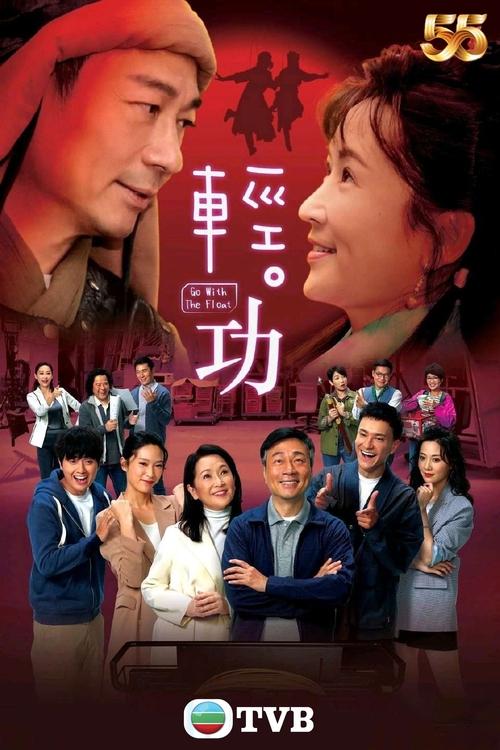
Ask Your Own Question
What is the plot?
In Episode 4 of "The Stories of Lion Rock Spirit," the narrative begins with a focus on the character of Ah Choi, who is struggling with the aftermath of a recent family tragedy. The episode opens with a somber scene in Ah Choi's home, where he sits alone at the dining table, staring at an empty chair that belonged to his late father. The atmosphere is heavy with grief, and the camera lingers on Ah Choi's pained expression, highlighting his internal conflict and sense of loss.
As the day progresses, Ah Choi receives a phone call from his childhood friend, Mei Ling, who invites him to a community event at Lion Rock Park. Initially reluctant, Ah Choi feels a pull towards reconnecting with his roots and the community that has supported him through his hardships. He decides to attend, hoping to find solace among familiar faces. The scene shifts to the vibrant park, filled with colorful decorations and the sounds of laughter, contrasting sharply with Ah Choi's earlier solitude.
At the event, Ah Choi encounters various community members, including his old mentor, Uncle Wong, who encourages him to share his story and honor his father's legacy. This moment stirs something within Ah Choi, and he begins to contemplate the importance of community and support in overcoming personal struggles. The camera captures his hesitant yet hopeful demeanor as he engages in conversations, slowly opening up about his feelings.
As the festivities continue, a sudden commotion arises when a group of local youths begins to vandalize the park's decorations. Tension escalates as community members confront the vandals, leading to a heated argument. Ah Choi, witnessing the chaos, feels a surge of protective instinct for his community. He steps forward, urging both sides to calm down and find common ground. His voice trembles with emotion as he recalls the values his father instilled in him about unity and respect.
In a pivotal moment, Ah Choi's intervention successfully diffuses the situation, and the vandals, taken aback by his passion, begin to reconsider their actions. This confrontation serves as a turning point for Ah Choi, who realizes the power of standing up for what he believes in. The community members rally around him, expressing their gratitude and support, which reinforces his sense of belonging.
Later in the episode, Ah Choi finds a quiet moment to reflect on the day's events. He visits a nearby hill overlooking the park, where he can see the vibrant scene below. The sunset casts a warm glow, symbolizing hope and renewal. As he gazes out, he recalls fond memories of his father, feeling a renewed sense of purpose. This moment of introspection is crucial for Ah Choi, as he resolves to honor his father's memory by actively participating in the community and helping others.
The episode concludes with a community gathering where Ah Choi shares his story publicly for the first time. His voice is steady, filled with emotion as he recounts his father's teachings and the importance of resilience. The community listens intently, and as he finishes, they erupt in applause, embracing him as one of their own. This moment solidifies Ah Choi's transformation, marking the beginning of his journey towards healing and active involvement in the Lion Rock community.
What is the ending?
Is there a post-credit scene?
What challenges does the main character face in Episode 4?
In Episode 4, the main character, who is deeply connected to the community, faces the challenge of reconciling her personal ambitions with the needs of her family and neighbors. She struggles with the pressure of a community project that could either uplift or divide the residents of Lion Rock.
How do the supporting characters contribute to the main plot in this episode?
Supporting characters in Episode 4 play crucial roles in shaping the protagonist's decisions. One character offers a contrasting viewpoint that challenges her perspective, while another provides emotional support, highlighting the theme of community solidarity amidst adversity.
How does the relationship between the protagonist and her mentor evolve in this episode?
Throughout Episode 4, the relationship between the protagonist and her mentor deepens as they navigate a crisis together. The mentor provides guidance, but also challenges the protagonist to confront her fears, leading to moments of tension and eventual understanding.
What specific event triggers the conflict in Episode 4?
The conflict in Episode 4 is triggered by a sudden storm that threatens the community's planned festival. This event forces the characters to come together, revealing underlying tensions and differing priorities among them.
What internal struggles does the protagonist experience in Episode 4?
In Episode 4, the protagonist grapples with feelings of inadequacy and self-doubt as she questions her ability to lead the community project. Her internal struggle is depicted through her interactions with others, where she oscillates between confidence and vulnerability.
Is this family friendly?
"The Stories of Lion Rock Spirit," season 1, episode 4, contains themes and scenes that may be sensitive for children or those who are easily upset. Here are some aspects to consider:
-
Emotional Struggles: Characters experience significant emotional turmoil, including feelings of loss, disappointment, and conflict, which may be intense for younger viewers.
-
Family Conflict: There are scenes depicting family disagreements and tensions that could be distressing, especially for children who may relate to familial issues.
-
Social Issues: The episode touches on societal challenges and personal hardships that may be difficult for sensitive viewers to process.
-
Dramatic Tension: The narrative includes moments of high tension and conflict that could evoke anxiety or discomfort.
-
Realistic Portrayals of Life Challenges: The show addresses real-life struggles, which, while important, may be heavy for younger audiences.
These elements contribute to the overall emotional depth of the episode but may not be suitable for all viewers, particularly children or those who are sensitive to such themes.























































